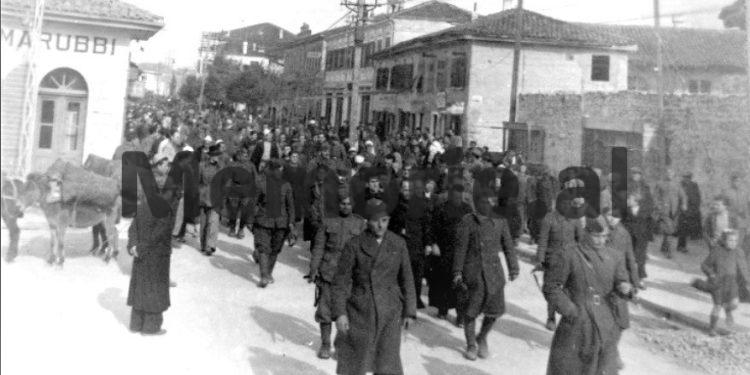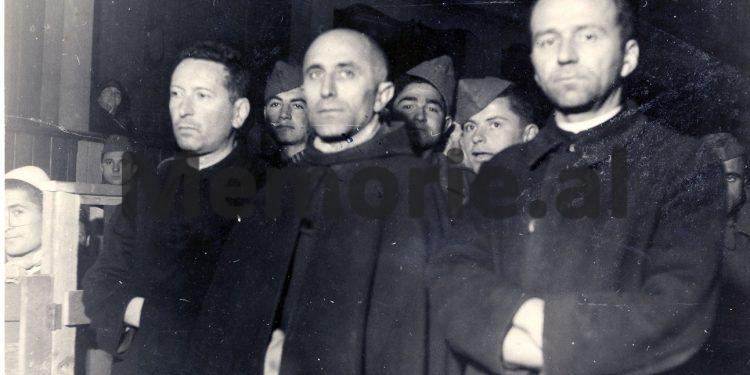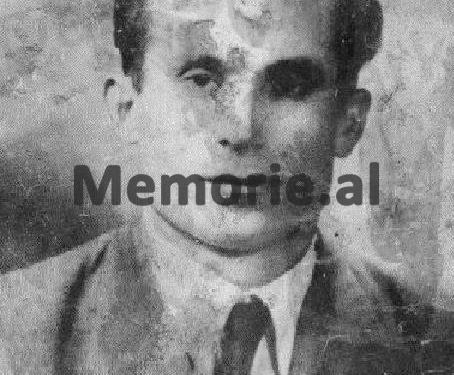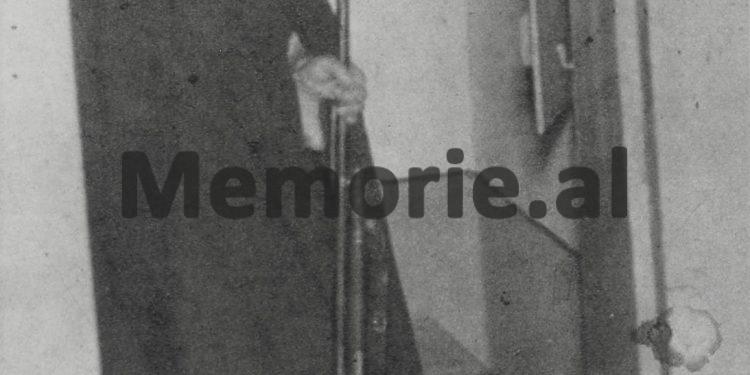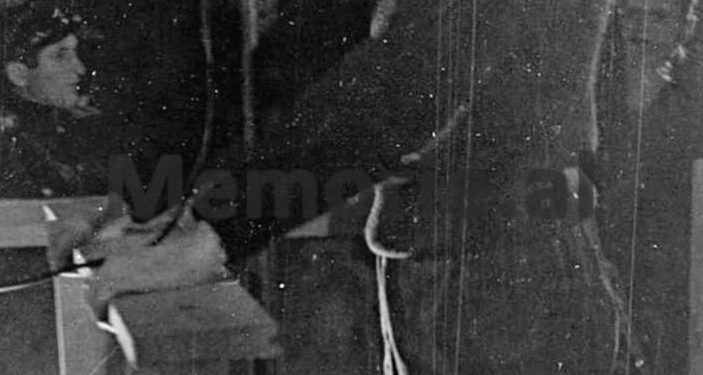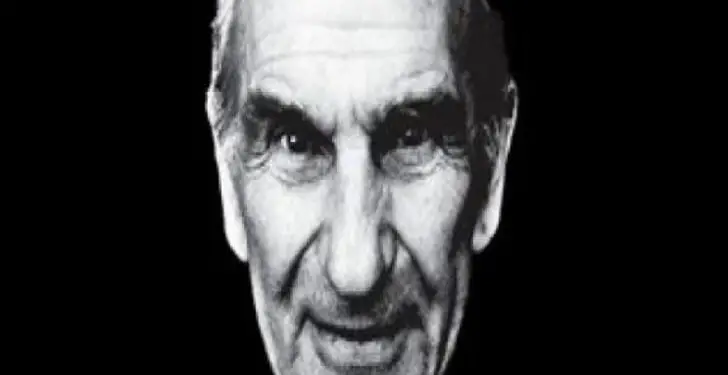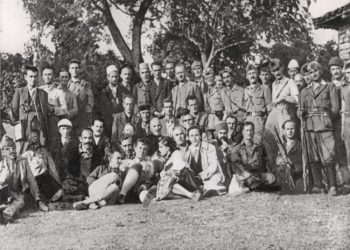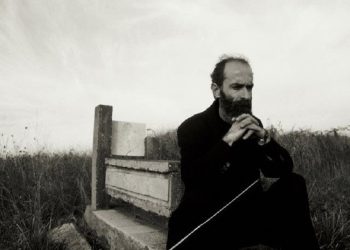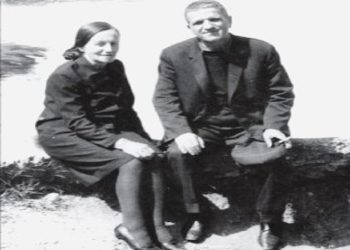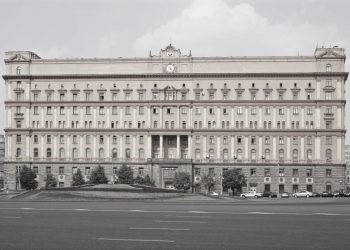By Peter Pepa
Second part
Memorie.al / “December 11, 1946 – “Weapons in the Church” are discovered; The Franciscan Assembly is seized! Arrested and tortured: 1. Monsignor. Frano Gjini; 2. Monsignor. Nicholas Deda; 3. Father Mati Prendushi; 4. Father Cipirian Nikaj; 5. Father Pal Dodaj; 6. Dom Tom Laca; 7. Dom Ndoc Sahatçija; 8. Father John Karma; 9. Dom Nikol Shelqeti; 10. Father Mhill Miraj; 11. Fra Zef Pllumi etc. Of course, we are dealing with a dictatorial state specialized in slandering and changing the truth, but also in selecting, changing and transforming documents. The witnesses of the first days of the overthrow of the dictatorship have seen with their own eyes, how the Police Stations and the Departments of Internal Affairs were burned, so taboo and untouchable, until the previous days…!
Continues from last issue
So, let’s go further on the facts of history, and thus we will find ourselves under Turkish rule. The message continues: Even at that time, when for hundreds of years, not a single word of Albanian could be written by anyone else, by Catholic clergy, bishops, priests or friars, yes, although reprisals and threats, persecutions and salvations, never separated the Church under earth and earth. First of all, we come across the first Albanian sentence: Formula of baptism, 1462, by Bishop Pal Úngjëlli and the first Albanian book, from 1555, where the author would openly say: “I John Buzuku, don’t find anything from the holy scriptures in my language, I was pushed by the desire for my homeland, I tried…my work, I finished it on 5 Kalnuer 1555”. So Buzuku, a Catholic priest is not at all afraid to declare that he is driven by the desire for the Fatherland.
Let’s go one step further, and we will stop at the Matjan Pjetër Budi, Bishop of Zadrima (1566-1623), who is also not afraid, when he writes in the Christian Doctrine, that: “God does not listen to the prayers of those who they pray in a foreign language, without understanding the meaning of the word they say”. And in the appendix of this book, we will also find the poems of another Albanian friar, Pal Has, from Kosovo. So from Mati to Kosovo, the two Christian provinces of that time, both for the language and homeland of Albanian, do not take into account any threat or danger. We meet the author of the first Latin-Albanian dictionary, Frang Bardhin, 1635, Bishop of Zadrima, who in his preface brings the simple patriotic reason for which he wrote that work: “… help our deaf, which is he’s getting stupid and bastardized as soon as possible”. Something further awaits us, another mentioned Kosovar, is Pjetër Bogdani, for 21 years, Ipeshkv of Shkodra and Skopje, who will be called the founder of Albanian literary prose, and who writes his preface in Albanian.
And we should not forget the other archbishop of Skopje, Gjon Gazulli (1702-1753), also from Gjakova, always Albanian, and doctor in philosophy and theology, who published his Albanian book in Rome in 1743, in the dialect of Gjakova. To end with John Francis Albani, or Pope Clement XI, who would also establish a college for Albanians, accepting, not without pride, that he belongs to the Albanian race? And if they want you, let them search and they will see that at the first Albanian school, primary or secondary, the first magazine, the first theater, the first meteorological station, etc., etc., they will find the clergy, the sweat of their talent, some of which we had the opportunity to mention in the introduction of this book. We will see that in 1493, there is mention of the Printing Press of Obot, with the books printed there, while in 1563, that of Shkodra. (Narodna Enciklopedia – Zagreb 11929; vr. “Hylli i Drita”, 1930, p.383).
We will see that, only during the Ottoman occupation that is until 1911, 47 Albanian schools were opened, of which 10 were for girls (Patër Donat Kurti, ‘Albanian Catholic Bulletin’ 1993, vol. XIV, p.202), and will be known with the school of Pllane, Blinishti, or Shkodra, since 1638-1698. We will see that on April 20, 1711, at the instigation of the Albanian Pope, Clement XI), the Chair of the Albanian Language was opened (in the Assembly of Saint Peter – Montorio, Rome). We will also find, since 1881, the publication of Father Leonardo de Martino “L’Arpa di un italo-albanese”, where he wrote to his friend, a scholar mentioned, among other things, the verses: “In man la spada d’atro sangue tinta/ L’ombra di Skanderbeg sdegnosa rugge/ Ah, ingrata Europe… é tua la colpa e il torto”.
With cruel blood smeared the grim sword in hand/ Skanderbeg’s scornful ghost roars/ Ah! You bread-and-butter Europe, you have guilt and guilt together” (Translated by Rudolf Marku). We will find: – The first musical band, by Father Tom Markozzi (1882) and the perfect orchestra and choir of Father Martin Gjoka (1917). – The show of the first drama, in the Albanian language by Father Leonardo de Martino (1880). – “Bashkimi” Society by Monsignor Prenk Doçi, in 1899, “Agimi” by D.Ndre Mjeda – 1901, “Albanian Language Club” – 1911, Society “Rozafa” – 1918, “Bogdani” – 1919, “L.E.K.A” – 1929, etc. – Museums and Pinakotekas of the Jesuits and the Franciscans and the great archaeological values of Father Shtjefën Gjeçov. – The first cinematography, in the Franciscan College – in in 1912 and later in the house of the painter and architect, Kol Idromeno, silent film of course.
But let’s move on to another important and again dangerous period; it is the period of the League of Prizren. A well-known figure in the patriotic field will immediately appear before us; is Prenk Doçi, the godfather of Mirdita, who, together with Prenk Bib Doda, would organize the uprising against Turkey, or the Mirdita Movement, in 1877, for which he would be arrested and exiled. But of course, he was lucky to be arrested by the Turks, because if they had been Albanian communists since then, he would have received a different punishment, and he would not have been able to establish and lead later; “Unification Society” to bequeath us the alphabet of the Albanian language, with which we are still today. Let’s move on; We will find ourselves in the period between the League of Prizren and the Assembly of Manastir, and there is no way not to say hello to the two colossus, the great poets, whose poems lined up in the immortal Albanian Olympus, that is, Fishta and Mjeda .
It is the time when, in November 1908, at the Congress of Manastir, Western culture would win and “Albanian language, go west” would say with all joy, the chairman of the Alphabet Commission at that Congress – Father Gjergj Fishta. He was happy because with his work, he had realized the all-Albanian aspiration and the dream of the great Naim: “Sun that rises, from there it sets.” We will also understand that, later, the two national figures so chosen, Marash Uci and Oso Kuka, are not random. The program of the clergy and all Christianity was: “Together with the Muslim brothers, for a free Albania”. This was in the heart, therefore, also in their work. There are plenty of examples and facts in this regard.
Crossing the threshold of 1912, we should not be surprised if Bajram Curri, during the great anti-Ottoman uprisings, would be accused by a certain Sulejman Kulsit – from Tetova, as a paid agent of the Catholics, that he really received patriotic lessons from the mouth of Dom Tom Berisha and was one of the most reliable defenders of the Catholics of Kosovo. And not by chance, in the first Albanian government of Vlora, in 1912, by Ismail Qemali himself, Monsignor Nikoll Kaçori was elected as vice president. So a Catholic prelate, chosen willingly, as right-hand man by Ismail Begu. After seven years, representatives of Albania at the Peace Conference in Paris, in 1919, would be Monsignor Luigj Bumçi, Father Gjergj Fishta e, Luigj Gurakuqi. It is appropriate to mention here the magnificent historical answer that Monsignor Bumçi would give to those who thought that, being in the minority, the Catholics had nothing to do in Albania, so it would be better to run away and leave him.
I answered: “I am testifying to you as a Catholic bishop, that I am a brother to the Albanian Mohammedans, and what do you need when I, in this state, want to live with them”?! Do I need a comment on this postulate, with such great significance while when Gurakuqi was asked, if he believed that Tosca and Gege could unite, Mohammedans and Christians, he would immediately answer: “If we didn’t have this belief, we would have left on the first steamer, so as not to I never came back to this place”. So we must not forget that neither the 15 centuries of Christianity nor the 5 centuries of Islam could break the threads that connect Albanians with the great Indo-European family. But let’s go two years further and enter the first Albanian Parliament. After the first elections of June 6, 1921, as deputies of the Prefecture of Shkodra, we will again find the two leaders, Mjeda and Fishta, even this second one, as the deputy speaker of that honorable and elected Parliament.
And, I believe that on this occasion, it is not meaningless to remember what the secretary of the Hungarian embassy in Rome would say a year later to Father Pal Doda: “You have some deputies in the Parliament, who would let also honored in the London House of Commons”; let’s not forget that, apart from the two above, there were also Luigj Gurakuqi, Riza Dani, Hilë Mosi, Fan Noli and many other men who weighed more than the other. “Catholicism – said Monsignor Noli, on the one hand gave Albania the unity it lacked as a state, and on the other hand, connected it with the European Christian world” (F. Noli – Tirana 1989, Work 4, pg. 490). So we come to the years 1932-1933 to the closure of Catholic schools and institutes just to remember that among the colleges that were being closed such prominent writers and patriots as Konica e Koliqi, Prendushi e Gurakuqi, Nikaj e Bumçi, Mjeda e Camaj were educated that would remain the honorable value of Albania for all time. From what we have presented so far, can the Albanian Catholic Clergy be called anti-national and reactionary?! Is it perhaps the most heroic Clergy, in the path of 2000 years of history, why after 500 years of Turkish captivity, from 1912 to 1944 are only 30 years and in such a short time and opportunity, He produced as many heroes as no other clergy in the world?
And now, entering the dark period of post-liberation, let’s see: Why was the communist fury so furious against the Catholic Clergy? Indeed, the grudge against the Clergy of the Christians was very great and, with the exception of those who do not want to know, everyone is clear that; the historical roots of this hatred were never found in the religious groups inside Albania, but somewhere further away, outside it. It was the new friendships, the interests and intentions of the “friends” towards Albania and the Albanian nation that they specifically sought to purify the Albanian patriotic elite. It was the communist dictatorship, which sought to establish itself and which saw the Catholic Clergy as its enemies. It was the atheist doctrine of Communism, which required “sine qua non”, something like that. And this, of course, had its own historical reasons. Since the First World War, even before the Congress of Berlin, Albanian nationalists were fighting for the preservation of the entirety of their homeland.
With the victory of the Balkan allies, Serbia, Greece, Bulgaria and Montenegro, against Turkey, in 1912-1913, the bad fate of Albania was predetermined: It would be divided between its neighbors, which would open the way to the Adriatic for the Serbs. , of their great friend, Russia. And if this did not happen, of course, apart from internal factors, there was also the help of Austria-Hungary, which, as is known, was ready to start the war in order to save Shkodra. So even though Albania was crippled and crippled like that, Shkodra was saved from the hands of course, not by chance. Apart from genuine political factors, as the old defender of Albanian Catholics, since the peace of Karlovic, year 1699, Austria-Hungary could not leave it in the hands of the Montenegrins.
On the other hand, through the persistence of Monsignor Bumçi, the Catholic clergy had always played a major role in raising national consciousness, and prevented them from being pushed to the coast. We must emphasize that, without any doubt, all true Albanian patriots, and those of other religions, were in one mind and one heart with him, wherever and whenever. Greece and Rome, these two ancient and great peoples, at the peak of their power, at the highest level of grandeur and organization, next to the aeropagus and the senate, had the temple and the altar, and besides the rulers, they also honored the gods, summing up all their treasures and ideals, in just two words: “Pro aris, et focis – for altar and hearth. “Religion and Motherland”! Always constitute a single ideal, which are not only natural, but also agree very well.
From ancient times to the present, there will not be found a people without a god, a society without faith, a nation without a cult. Yes, there will be periods of war against religion, but permanent disappearance of faith will never be found in any people. Therefore, he is seriously mistaken, who sees faith as a violation of patriotism, because patriotism means love for people, and religion exactly sows fraternity among people. Perhaps it is the place to remember here the witnesses, who best prove everything we said above: Jean D’Arc in France, Hoffer in Austria, Wilhelm Tell in Switzerland, etc. When a veteran fighter was accused of violating the freedom and majesty of the homeland, he immediately revealed his chest, removed his shirt and said: Here! These wounds that my armor received in the war, to protect and save the homeland, let them speak for me. And, of course, no one can speak about the patriotism of Albanian religious people and believers better than the spilled blood.
In Decic and Kaçanik, the brave men of Thessaloniki and Kosovo fought for Albania and believed in God. Ded Gjo Luli and Isa Boletini, Themistokli Gërmenji and Shtjefën Gjeçovi, were believers and religious; Thimi Mitko and Papa Kristo Negovani, Sali and Gani Butka, were not atheists, yet they fought and gave so much for their homeland. Not faith, but rather materialism, weakens and weakens man. “A nation must be virtuous if it is to be free,” said George Washington. That’s why Skanderbeg, who was called “Pater Patrie” – father of the Fatherland, but also “Miles Christi”, – soldier of Christ. But, let’s continue further and we will encounter the last attempts, 1919-1921, to capture Northern Albania, up to Drin e Mat. A part had been taken since 1880, and now the already well-known song was sung again: “Ot Bregmata, do Kotora eta zemla Cërnagora – from Bregu i Mata to Kotor, it is the land of Montenegro” and, which ended without success and complete failure. But finally, the day came. The year 1944 was making Albania a piece of Belgrade. Now or never, old grudges could be washed away.
Now or never, the hatred accumulated for a long time could find relief. The strong fortress of Catholic patriotism was already in their hands and they would know, as they know, to scale it to the top and bottom. They would therefore act in such a way that other elite of patriots would never be formed, like the one that had been formed for centuries and had always challenged them. Of a painful coincidence: “Woe to Christianity, because it lost its sword and shield”, Sultan Mehmeti had shouted with joy, when he heard the death of Skënderbeu, in 1468, “woe to Christianity…”, they would shout with joy Serbian chauvinists, after nearly 500 years, in 1944.
This is because during a period of 5 years, 1944-1949, something happened that was never possible before. That tragedy and massacre began, which as Mr. Sami Repishti would say: “For Albanian Catholics, it does not take on the true and full meaning if it is not publicly affirmed, by everyone and with conviction, from 94 regular parishioners and, 93 assistant – during the years 1944-’49, 7 bishops, 4 monsignors, 56 parishioners, 30 Franciscan fathers, 13 Jesuit fathers, 10 seminarians, etc. were killed, tortured and imprisoned. So, continues Mr. Repishti, “torture doesn’t have its full meaning, if you don’t remember the words that Pandi Kristo said in prison: “Those Lleshrat and Prengrat, we killed them innocently and innocently only because they were Catholics. Yes, they have the right to complain.”
Well, it wasn’t about Lleshra and Prengëra, anyway, but about intellectual and patriotic men, like; Llesh Marashi and Preng Cali, who had done so much for the fate of their country, for Albania. We said at the beginning that this serious and destructive drama had two acts, because not even two years passed and those who had helped organize and implement this scenario were also imprisoned. The truth is not long in coming to light: On July 28, 1948, an aspirant in the Shkodra Security section, Pjerin Kçira, was arrested with four other Christians, 20-24 years old. They are accused as; “members of a secret organization, which has made decisions for assassinations against the officials of the Party of Power” (an organization allegedly formed ten days ago).
With dt. 28.5.1949 the court opened the process against them and on June 10, sentenced the chairman, Pjerin Kçira and Nush Simoni, to 20 years in prison. In order to clear his conscience or from the anger of that punishment, Pjerin Kçira retorts with the president of the court, where he says, among other things: “Don’t think that you are doing with me, what we did with the Catholic Clergymen, putting their weapons in the Church, and forcing them through inhuman torture to admit that they are theirs. To cover up your and Enver Hoxha’s ignominy, you want to punish innocent people”. The president of the court, shocked, immediately closes the court session. The next day, on 11.6.1949, the court sentenced him to death! There are many witnesses who speak and tell about this ugly event.
We are listing the first, Fra Ndue Vila, the porter of the church who, because he refused to hand over the keys and open the gate to let in the new powder-free guns, long rifles and polished mausers, at about 4.30 in the morning of that day, they massacred him as if not worse. Fra Ndue Vila was the son of Prend and Dava Dedëgjoka, born in Orosh – Mirdita Abbey, on June 24, 1879. He served in the Franciscan Church. They arrest him because he refuses to hand over the keys to the Church, in order to bring in the weapons. After several months of torture, he spends several years in prison and when he comes out, crushed by torture, he dies on May 4, 1956, in the Franciscan Assembly – Arra e Madhe. He always said later: “They put the weapons in the Church themselves, because they asked me for the keys…”!
Let’s follow it in more detail, from the surviving witness of the dictatorship, Pater Zef Pllumi.
Evidence: Based on the government announcement, for the surrender of weapons, the guard of the Assembly, Father Çiprian Nika, announced that there were 3 weapons in the Franciscan Museum and in the Franciscan Assembly, a hunting gun, with three muzzles, that he once had in use at Cape Rodon, Fr. Zef Hajmeli, the last friar there, until 1929. At that time, the so-called ‘Agrarian Reform’ was implemented and thus the lands of the Franciscan Church in Lezhë were nationalized, as well as those of the Assembly of Troshan. Father Çipriani left for Tirana, asking for the return of these properties, as the Franciscans had no way of living without them. As soon as he returned from Tirana, in the courtyard of the Parliament, the arresting officers were waiting for him: they handcuffed him and immediately demanded the weapons, which he had informed about…!
With dt. On December 14, 1946, the Franciscan Assembly of Gjuhadol was found surrounded in the first hours. When Father Ferdinand Pali and Fra Ndou wanted to open the doors, they found the partisan guards, who did not let them go out or open the doors. Before 8 o’clock, Dul Rrjolli came with a squad of soldiers. They ordered us all to gather in the canteen. They started by controlling the Assembly. We were ordered not to leave the canteen without permission, not even for personal needs. At the door of the mensa, they put a guard and another one in the corridor…! The trial was held in the Editorial Office of “Hyllit te Drita”. With dt. January 13, according to the indictment. This was formulated the same for 10 people. The indictment consisted of 14 points, which, more or less, had the following content: – All of these are clerics of the Catholic Church, the center of global obscurantism, throughout history. – That they have served the slave owners and all the monarchs of the centuries.
– That they have caused many religious wars, the anti-Islamic crusades, but they have also prepared the night of St. Bartholomew in France. – For obstructing science and persecuting scientists, you burned them alive, like Galileo Galilei and Giordano Bruno. – That they actively cooperated with all the empires for the oppression of the peoples. – That they collaborated with the Turkish Empire, at the expense of the Albanian people. – That they cooperated with the Austro-Hungarian Empire and prepared its arrival. – That they have prepared the arrival of fascism. – That they collaborated with King Zog, for the oppression of the Albanian people.
– That they prepared the Italian occupation of April 7, 1939. – That they fought the National Liberation Movement. – That they want to overthrow the People’s Power, etc.! During the time that the last words were being pronounced, in the courtroom, there was an officer, he brought an envelope to be closed, and gave it to the president of the Court. The chairman opened it and read it himself; he also gave it to his friends, while we were flying. Then the duel outside everyone. At 2 p.m., the decision was made: That’s it. We waited there, as they told me, for 20 minutes, guarded by the military, so that we never utter a word. When you enter the court, together with the major who brought the paper, those in the camp and all of us were taken to the camp, except for Dom Anton Muzajt.
It was read by the President, the decision was formulated at length, with convincing evidence, which usually all executioners in the world fall: 1- Monsignor Frano Gjini – shot to death; 2- Father, Mati Prendushi – shot to death; 3- Monsignor, Nikoll Deda – shot to death; 4- Dom Tom Laca – with life imprisonment; 5- Father Dionat Kurti – with life imprisonment; 6- Dom Ndoc Sahatcija – with 15 years in prison; 7- Father Mhill Miraj – with 10 years in prison; 8 – Dom Mark Hasi – with 7 years in prison; 9- Zef Haxhia – with 5 years in prison; 10- Dom Nikoll Shelqeti – with 3 years in prison; 11- Friar Zef Pëllumbi – with 3 years in prison; 12- Dom Anton Muzaj – on bail.
For a few seconds, complete silence. At that time, Father Mati Prendushi spoke: – Lord, judge, maybe we will not see each other again in this life, with these brothers and friends, will you allow us to greet each other and take the halal from each other? – Only 5 minutes – said the chairman of the Court. I have the impression that these five minutes are unique in the history of mankind. Even during the martyrdom of Christians, scenes like those I saw with my own eyes, on January 16, 1948, hardly developed. Then, in front of everyone, Father Mati Prendushi addressed the first Dom Ndoc Sahatçia: -Dom Ndoc , I am yours to forgive with all my heart, for all the slanders you made against me and others. And I will pray to God to have mercy on you, and God forgives you, just as I am forgiving you! – And then he went and hugged the first one. All of us, we hugged with tears in our eyes, with our husbands, with those who were sentenced to death – (Patër Zef Pllumi, Rrno per me treje’ Volume I, pg. 201)
This was the situation when the famous “discovery” of weapons in the Church took place. This was the macabre scenario that closed this difficult year 1946. There were so many victims, so many blows, so many sad information and testimonies, which we will talk about when we describe the black that happened two years then, in 1948, after torture, horrors, punishments and mass shootings. So now, this time, we are stopping at the end of 1946, assuring you that the echo of these endless arrests of this year will later be felt throughout Albania. We decided to leave them as they were…in their own time. Memorie.al




